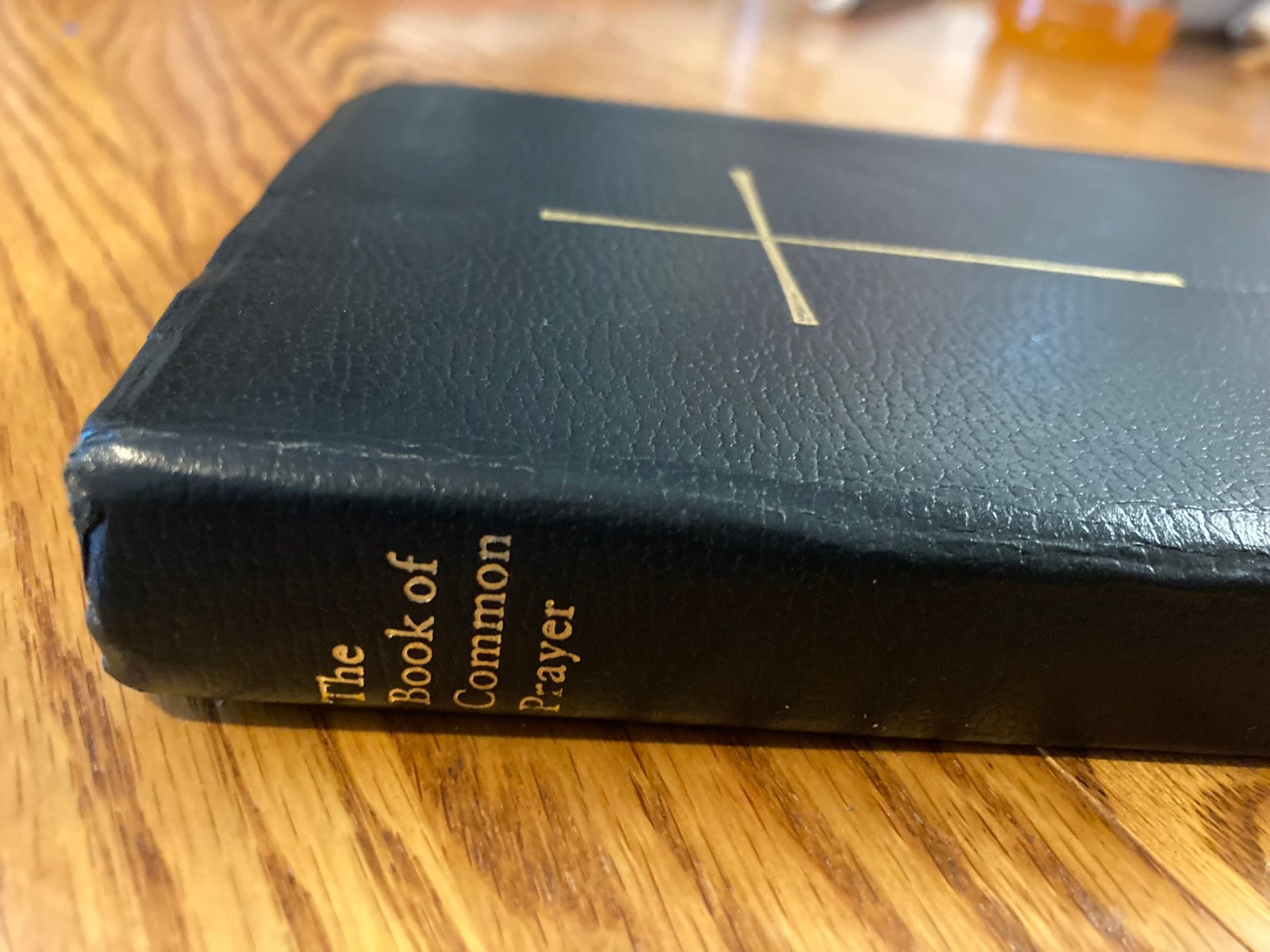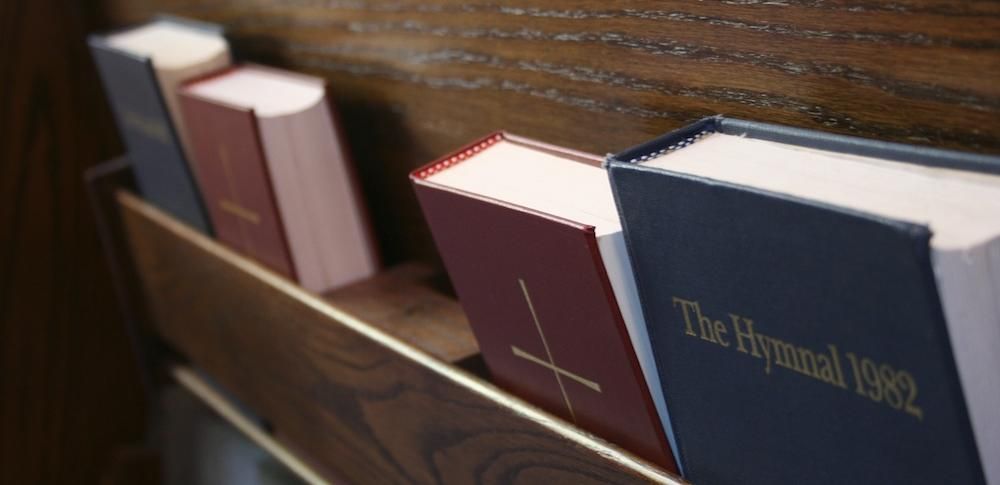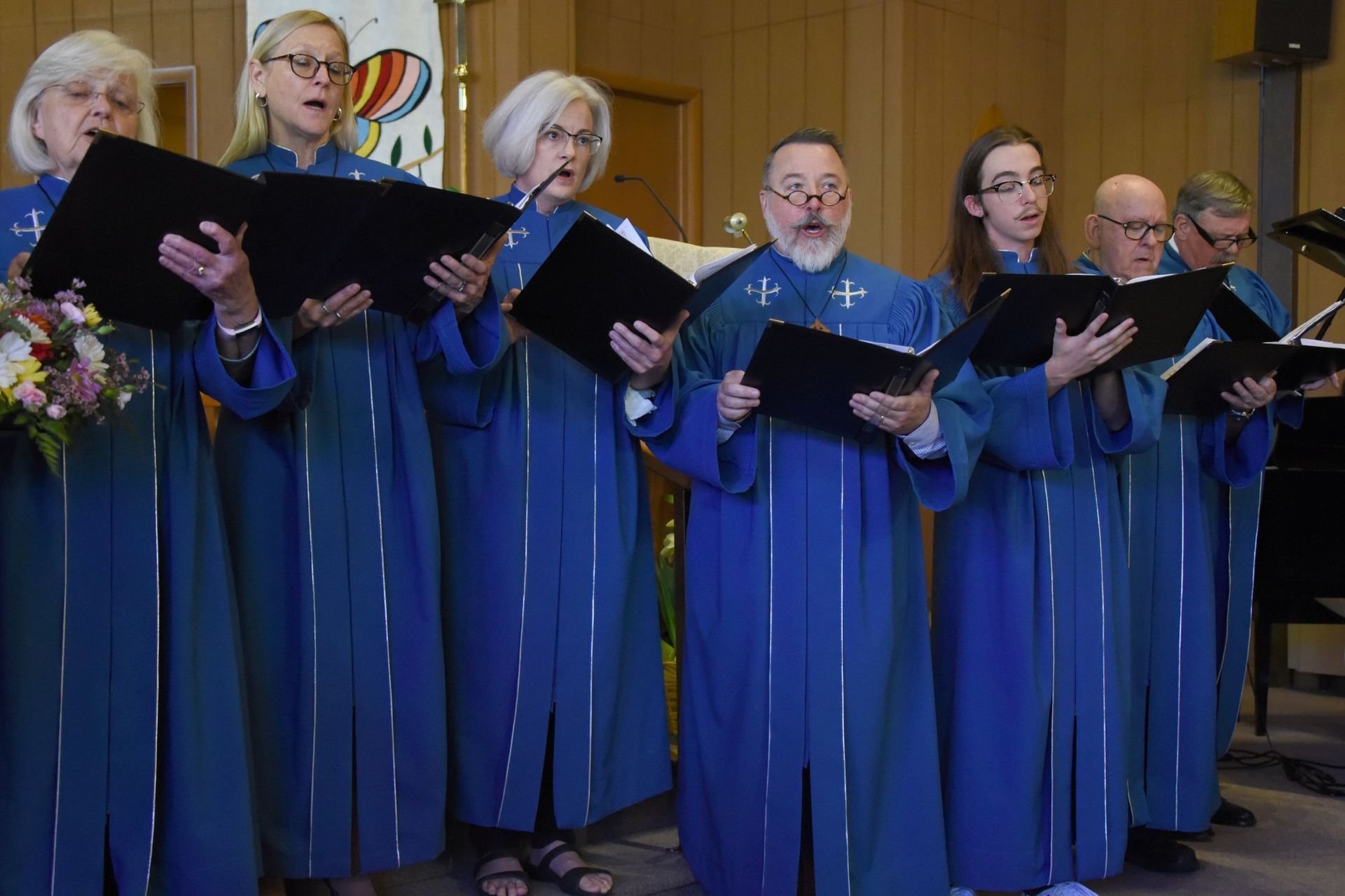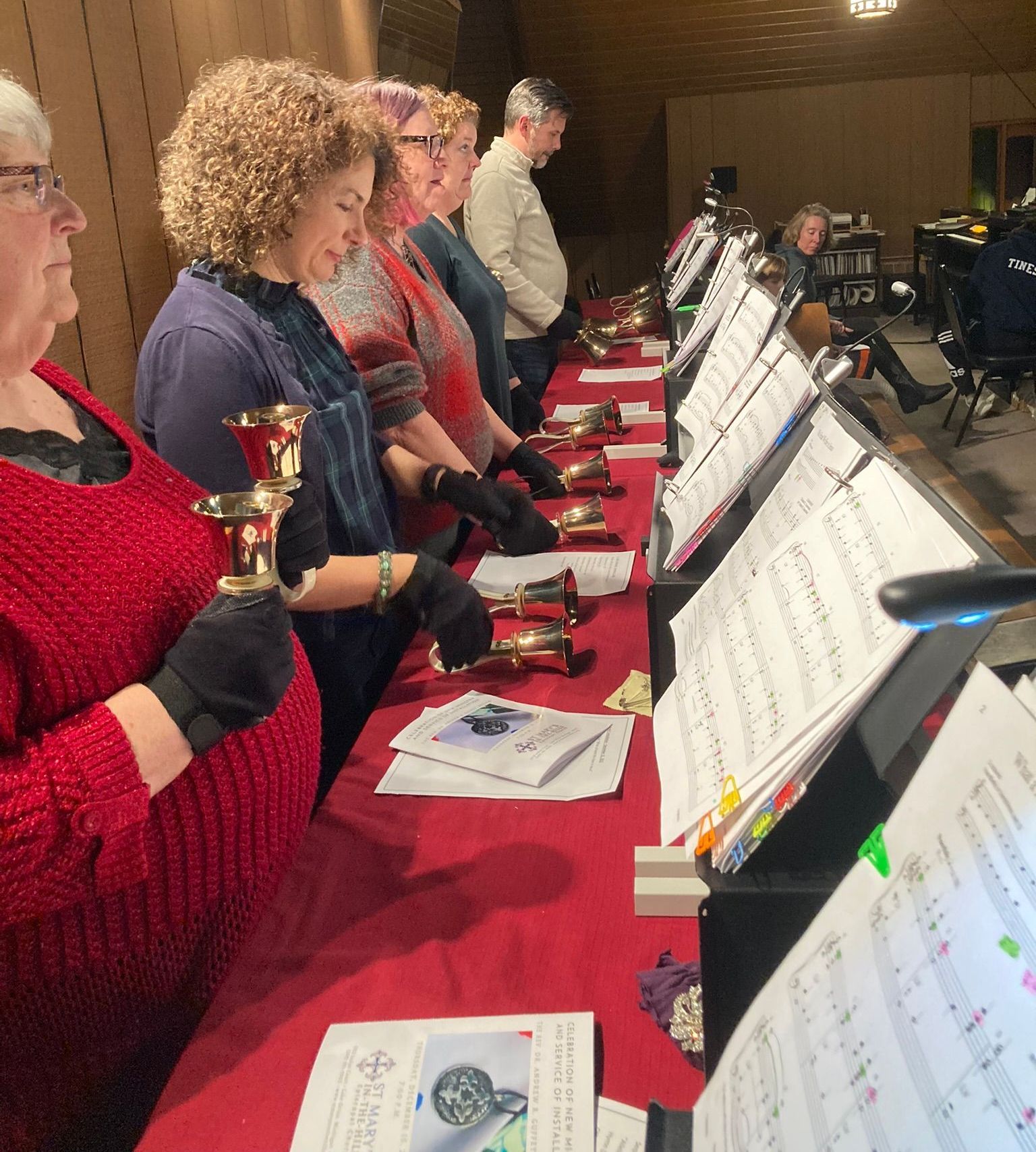Worship with Us
This Week's Service

Our Welcoming Prayer
HOLY SPIRIT living within us, guide our hearts and minds as we welcome today all those who worship with St. Mary’s.
Give us discerning hearts so that everyone who crosses our threshold feels welcomed in the spirit of your love.
Help us to recognize each person as an individual sent by you who will enrich our lives.
And most of all, O God, let this be a community of love and acceptance for all your children;
in the name of your Son, our Savior, Jesus Christ.
Amen.

This is the Welcoming Prayer with which we prepare ourselves for worship each Sunday. This is how we understand our worship together: as an invitation extended to everybody to come into God’s presence. We recognize that it is God who has gathered us together, and we prepare our space and our hearts to welcome all that God wants to show us. We come together to lift up our hearts to God in adoration, to confess the ways we have fallen short of our calling as followers of Jesus, to plead with the God of all mercy on behalf of a hurting world, and to offer our never-ending awe and thanks for all the blessings of this life.
Our worship service would be better if you were here with us. Everyone of us has experienced challenges to our faith. We come each week with experiences that shape our faith and our relationship with Christ. By worshiping together we lift each other up and find the commonalities that make us stronger. We are looking forward to welcoming you!
The heart of our service is the celebration of Holy Eucharist, according to the Book of Common Prayer (1979).
Service Times
8:30 a.m.
A spoken service, with minimal singing of parts of the service, offering the opportunity for quiet contemplation.
10 a.m.
A service that includes choral music and the singing of hymns and other portions of the service. Nursery care is offered during the service, and opportunities for children and youth formation and participation.
Online
Our weekly 10 a.m. services and several other special services are live-streamed on Youtube. You can also find previous services there.
Common Prayer
How we worship

Book of Common Prayer
The Book of Common Prayer (BCP) is the guide to worship and devotion in the Episcopal Church. It frames our worship life, our faith and belief, and our daily relationship with God. So, how does the BCP shape our worship?
As the BCP says, "The Holy Eucharist, the principal act of Christian worship on the Lord's Day and other major Feasts, and Daily Morning and Evening Prayer, as set forth in this Book, are the regular services appointed for public worship in this Church."
Our Sunday worship is a service of Holy Eucharist and follows the liturgical forms of the BCP. Those forms are not so different from what one might experience in a Roman Catholic mass, and while we do celebrate the Eucharist with reverence, we do not unnecessarily exclude anyone from the Sacrament. All who long for the grace of the Eucharistic Sacrament are invited and welcome at the altar of our Lord.
Our services are interactive--all are encouraged to participate. The 10 a.m. service also includes the singing of hymns, mostly from the Episcopal Hymnal 1982, and choral music.
Everybody is welcome at our services. And we mean everybody. Whatever your age, race, gender, gender identity, or ability, you are welcome to worship with us! Come as you are.
Sing to the Lord a New Song
Our Music Ministries
St. Mary’s has been fortunate to foster some extraordinary musical opportunities, both within worship services and with special concerts and recitals.
In recent years we have hosted an opera company for their concerts and a concert of Handel's Messiah.
In addition to our choir and bell choir, our Easter and Christmas Services also regularly feature special music and a brass quintet.
Serving in Worship
Altar Guild
The Altar Guild is a group of men and women who are the set designers for the church and communion service. They design the beautiful flower arrangements that often reflect the season of the year or the season of the church. They care for all the vestments, linens, chalices, and other items used during the Eucharist. They are responsible for setting up and disassembling the altar every Sunday. Two or three people, led by an acolyte, present the bread and wine to the altar for the Eucharist.
Lectors (Readers) and Intercessors
Anyone can volunteer for one of four readings that take place during the service. They are the New Testament lesson, the Old Testament lesson, the Psalm, and the Prayers of the People.
Acolytes
Young people age 9 and older serve as acolytes. They have several responsibilities including lighting and putting out the altar candles. They carry the processional and recessional crosses. They carry a cross for the presentation of the bread and wine and they assist the priest in preparing for and reading the Eucharistic prayers.
Lay Eucharistic Ministers and Visitors
These people receive special training to help the priest with the Eucharist. Our Lay Eucharistic Ministers offer people a chalice with wine.
Choristers and Musicians
The choir usually performs a special piece of music at each service, typically just before the Eucharist. The congregation also looks to the choir for support when we sing the hymns during the service.
Ushers
A team of ushers greats everyone as the enter the church. They also distribute the service bulletins, help with seating, manage the collection plates, and guide the congregation when the Eucharist is received.
Counters
After Sunday Services, we depend on trained and reliable members to count and record the offerings of the day.


